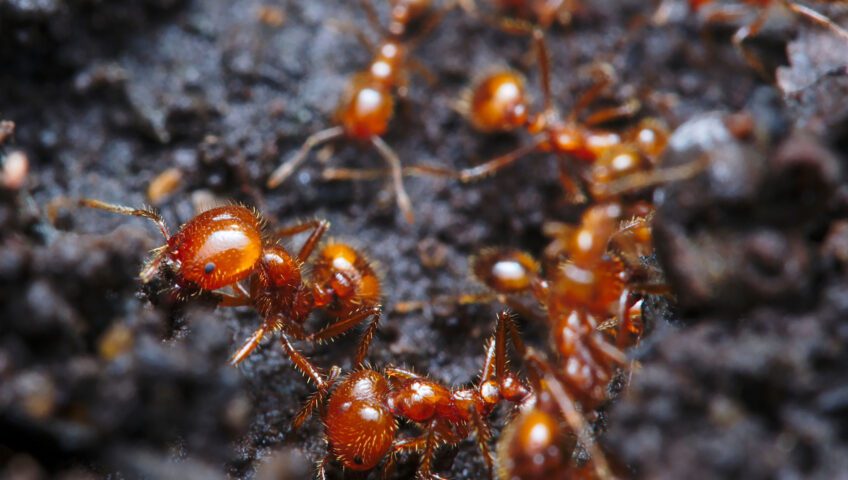They’re called fire ants because of their stings. That’s probably an exaggeration: While people can feel a little twinge from a stinging ant, it’s hardly like being burned with fire. But the aftereffects can be uncomfortable for anyone unlucky enough to disturb a nest and feel the swarm’s wrath.
The most severe problem is allergic reaction. A person allergic to fire ant stings can experience hives and extreme itching, sometimes even nausea. More serious symptoms are swelling in the tongue or throat, or a drop in blood pressure leading to unconsciousness. These are signs of anaphylaxis and the need for immediate medical attention.
When fire ants attack, they will bite and sting. Their mandibles chomp onto a victim’s flesh, anchoring the insect in place to administer repeated stings. These ants are aggressive and quick to swarm onto a foot, attacking as they work their way up the leg.
To the average person, the experience is mildly painful. The venom creates pimple-like pustules on the skin that itch and often last up to a week. These can appear within 20 minutes of a sting. They are fluid-filled, usually opening and draining on their own. Scratching can actually prolong the condition.
Treatment for fire ant stings is fairly straightforward: Wash the area to prevent infection, then apply a cold compress. Over-the-counter topical medicines containing hydrocortisone can help relieve the itching. In the event of swelling, an oral antihistamine is usually helpful.
Again, if there are any signs of anaphylaxis, seek medical attention right away. People especially prone to this condition may wish to use an epinephrine pen during emergencies.
Probably the best way to deal with fire ant stings is to avoid them in the first place. Keep vigilant when you’re working in the yard to minimize the chances of contact with a nest. Wear shoes and socks. Gloves also provide good protection.
A pest-control company like Slug-A-Bug can give you a huge advantage. Our techs treat Brevard County yards so residents are safe from this much-maligned pest. Contact us for a no-cost, no-obligation inspection. Call (321) 259-7844.
For more information:
https://www.aaaai.org/tools-for-the-public/conditions-library/allergies/fire-ant-allergy
https://my.clevelandclinic.org/health/diseases/23362-fire-ant-bites
https://www.webmd.com/allergies/fire-ant-stings
https://www.medicalnewstoday.com/articles/312484https://weeklysafety.com/blog/fire-ants
